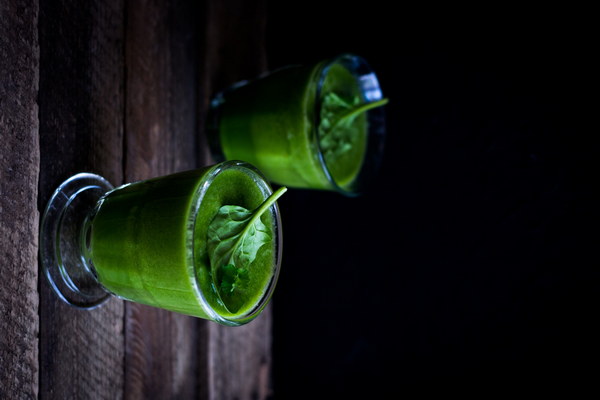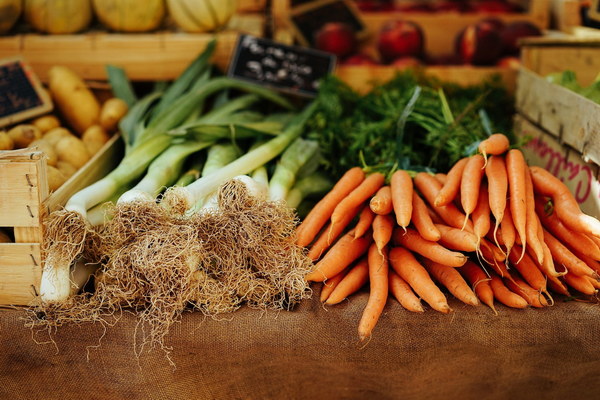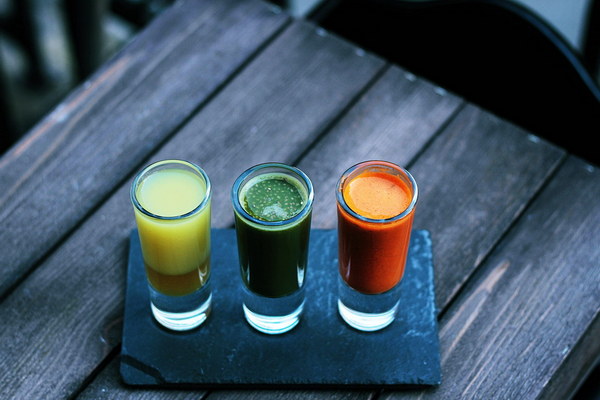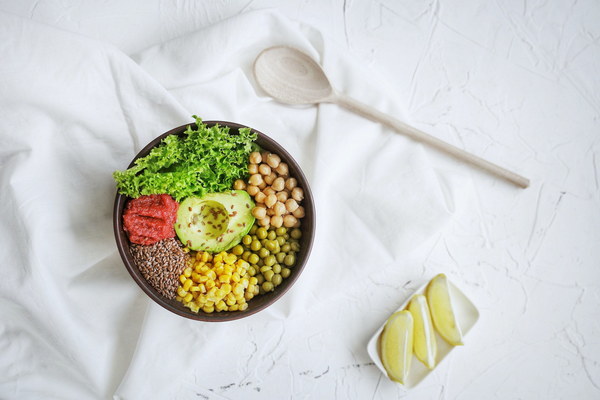Easing Liver Qi Stagnation A Guide to Alleviating Sour Taste in the Mouth with Liver-Protecting Foods
Liver Qi Stagnation, a common traditional Chinese medicine (TCM) concept, refers to an imbalance in the flow of Qi (vital energy) within the liver. One of the symptoms that may manifest in this condition is a sour taste in the mouth. This article delves into the causes of liver Qi stagnation, explores the symptoms, and provides a comprehensive guide to choosing the right liver-protecting foods to alleviate this discomfort.
Understanding Liver Qi Stagnation
Liver Qi Stagnation is often associated with stress, emotional disturbances, and an imbalance in the body's energy flow. The liver is responsible for the smooth flow of Qi throughout the body, and when it becomes blocked, various issues can arise. A sour taste in the mouth is one such symptom that may indicate an underlying liver Qi imbalance.
Symptoms of Liver Qi Stagnation
In addition to a sour taste in the mouth, individuals with liver Qi stagnation may experience the following symptoms:
- Mood swings, irritability, or depression
- Sore muscles, especially around the ribcage
- Stiff neck
- PMS symptoms in women
- Pain or discomfort in the liver area
- Insomnia or disturbed sleep patterns
Foods to Alleviate Liver Qi Stagnation and Sour Taste
To address liver Qi stagnation and its symptoms, it's important to incorporate certain foods into your diet that can help soothe the liver and promote Qi flow. Here are some liver-protecting foods to consider:
1. Green Vegetables: Foods rich in chlorophyll, such as green leafy vegetables (spinach, kale, and Swiss chard), are known for their liver-cleansing properties.
2. Sour Foods: Consuming sour foods, such as lemon, lime, and apple cider vinegar, can help stimulate the liver and aid in digestion.
3. Dandelion: This herb is well-known for its liver-cleansing properties and can be consumed as a tea or added to salads.
4. Artichoke: The artichoke is rich in cynarin, a compound that supports liver health and helps to improve bile flow.
5. Beets: Beets contain betalains, which can help to purify the liver and promote digestion.
6. Garlic: Garlic is a powerful immune booster and helps to stimulate liver function.
7. Turmeric: This spice contains curcumin, a compound with anti-inflammatory properties that can help support liver health.
8. Ginger: Ginger has anti-inflammatory properties and can help to improve digestion, which is beneficial for liver Qi stagnation.
9. Chicken Soup: Chicken soup, especially homemade with herbs and spices, can be a soothing and liver-supporting meal.
10. Seaweed: Seaweed is high in minerals and vitamins that can support liver function.
Incorporating Liver-Protecting Foods into Your Diet
To incorporate these liver-protecting foods into your diet, consider the following tips:
- Start your day with a glass of warm water mixed with a squeeze of lemon or lime juice.

- Include a variety of green vegetables in your salads and cooked dishes.
- Add dandelion leaves to your smoothies or prepare a dandelion tea.
- Prepare a meal with artichoke hearts or add beets to your roasted vegetable platter.
- Use garlic and turmeric in your cooking to add flavor and health benefits.
- Incorporate ginger into your meals by adding it to stir-fries or as a garnish for soups.
- Enjoy a bowl of chicken soup with herbs such as thyme and rosemary.
- Include seaweed in your diet by adding it to sushi rolls or as a snack.
Conclusion
Liver Qi Stagnation can lead to a sour taste in the mouth and other uncomfortable symptoms. By understanding the causes of this imbalance and incorporating liver-protecting foods into your diet, you can help alleviate these symptoms and promote overall liver health. Remember that diet is just one aspect of managing liver Qi stagnation; lifestyle changes, stress management, and herbal remedies may also be beneficial. Always consult with a healthcare professional before making significant changes to your diet or treatment plan.









